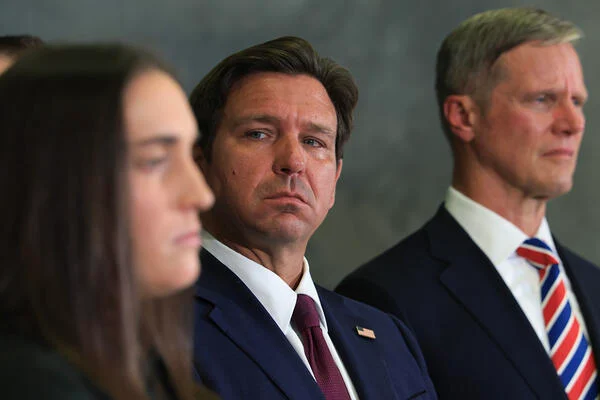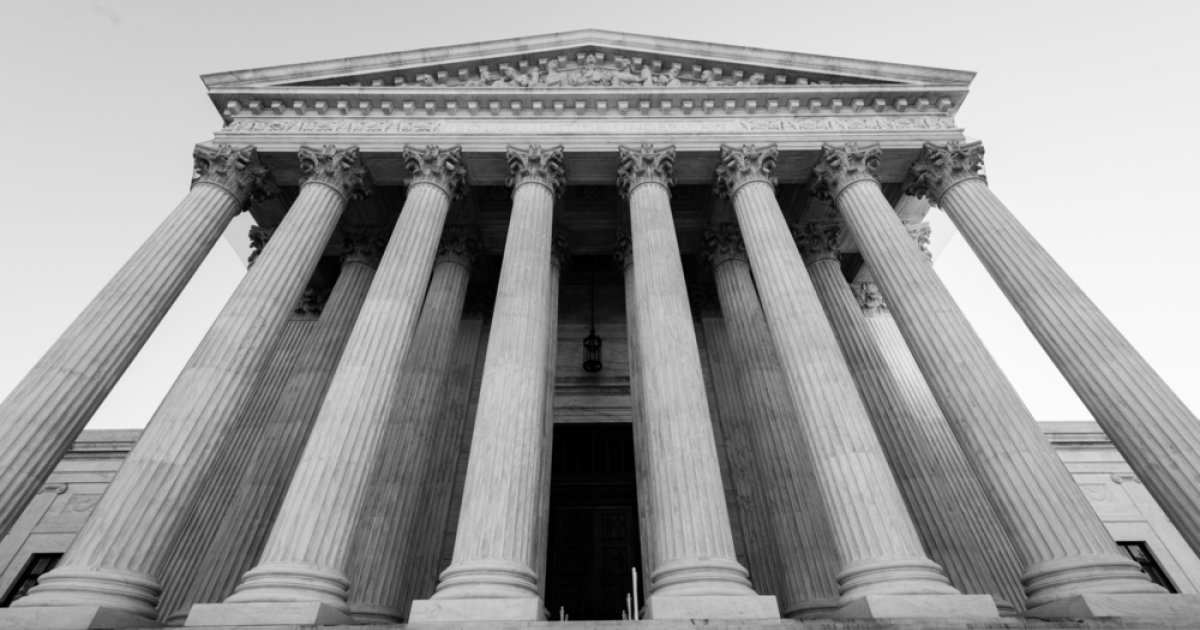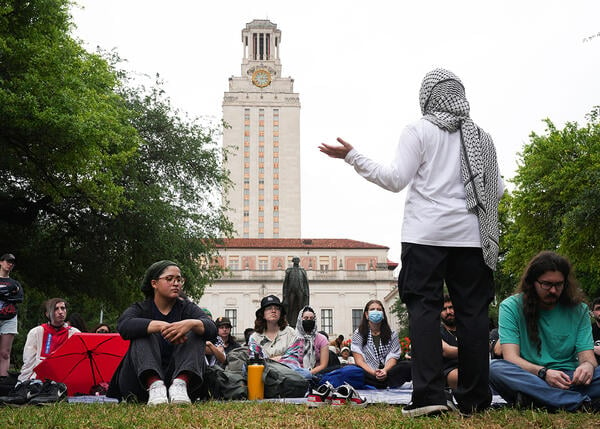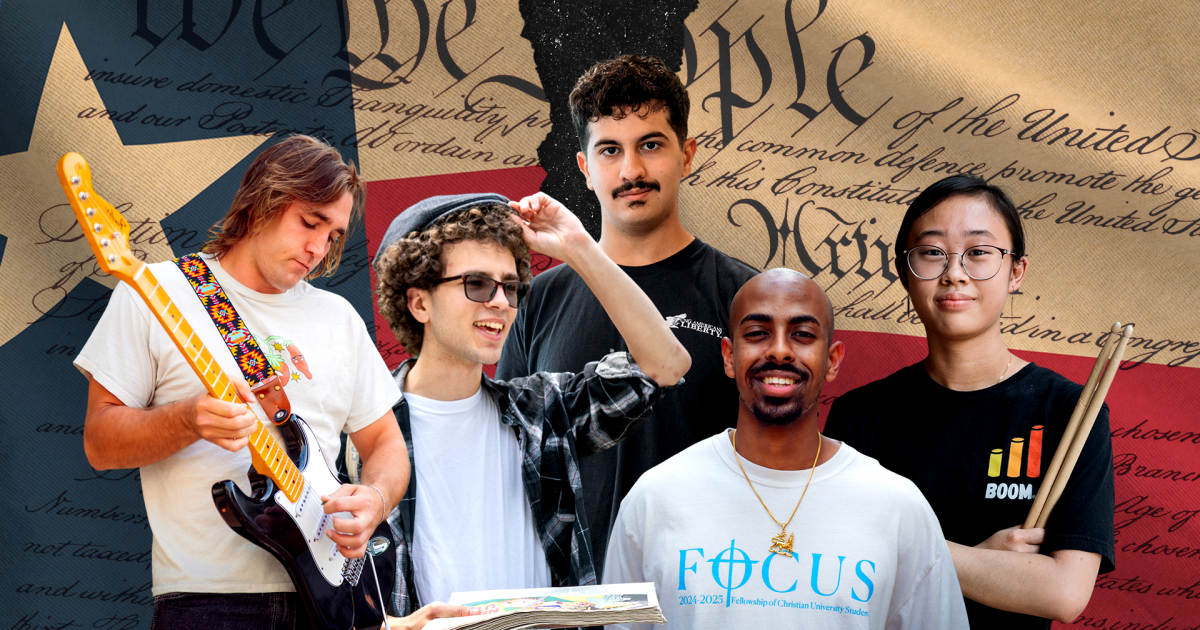Last week, the Supreme Court heard oral argument in Chiles v. Salazar, a First Amendment challenge to Colorado’s ban on “conversion therapy” — that is, counseling intended to change their gender identity or attraction to someone of the same sex. The case has attracted widespread attention because conversion therapy is deeply controversial. But the Court’s decision is poised to have significant consequences far beyond the practice — so to protect free expression, the Court should find the law unconstitutional.
That’s because Chiles hinges on one of the central questions in First Amendment jurisprudence: When do words become functionally indistinguishable from conduct?
The First Amendment broadly protects speech, including expressive actions like holding a sign or marching in a protest. But conduct — assault, for example, or drunk driving — is fair game for the government to regulate and/or criminalize. When speech is inextricably linked to certain conduct, it may lose First Amendment protection.
The classic example is incitement — speech intended to and likely to result in imminent lawless action. Because the words are so closely tied to the immediate crime that’s all but certain to result, incitement isn’t protected by the First Amendment. That’s a high bar to meet, because we Americans value freedom of speech and are rightly wary of government control.
In defense of fiery words
In the wake of political violence, calls to criminalize rhetoric are growing louder. But Brandenburg v. Ohio set the bar — and it’s a high one.
Read More
But deciding exactly where to draw the line between speech and conduct can be sharply contested — as in Kaley Chiles’ case.
Conversion therapy has a long, painful history. For many years, being anything other than “straight” was socially taboo and widely criminalized; until 1974, homosexuality was listed in the Diagnostic and Statistical Manual of Mental Disorders. Attempts to “cure” people of their sexuality or gender identity were widespread and took a variety of forms, including the use of electric shocks or chemicals. Now, groups like the American Psychiatric Association, the American Counseling Association, and the American Medical Association oppose conversion therapy, linking it to negative mental health outcomes and even suicide. And today Colorado is one of 27 states that ban counselors from engaging in conversion therapy with minors.
But let’s say some conversion therapy doesn’t include shock treatments, medicine, or any physical conduct. Suppose instead it consists solely of a counselor and a client talking to each other. It would still be prohibited by Colorado’s law, which bans counselors from any practice that “attempts or purports to change an individual’s sexual orientation or gender identity, including efforts to change behaviors or gender expressions or to eliminate or reduce sexual or romantic attraction or feelings toward individuals of the same sex.” And the prohibition includes situations where individuals seek out such advice.
That’s why Kaley Chiles, a counselor in Colorado, filed a First Amendment challenge to the law in September 2022. Chiles alleged the law prevented her from providing “licensed, ethical, and professional counseling that honors her clients’ autonomy and right to self-determination,” explaining that “speech is the only tool” she uses in her counseling. Consequently, she argued, banning her speech-only counseling violates the First Amendment.
A federal district court disagreed. Rejecting Chiles’ challenge, the district court held the ban was a “public health law” that “regulates professional conduct rather than speech.” In other words, Chiles’ conversation was more than just talk, but rather treatment, and thus the law’s impact on Chiles’ ability to communicate with clients was “incidental to the professional conduct it regulates.”
Talk therapy is speech. And when the government prohibits speech because it doesn’t like the views being expressed, it violates the First Amendment.
Chiles appealed to the U.S. Court of Appeals for the Tenth Circuit, arguing the district court got it wrong by treating her counseling as “medical treatment” instead of “a client-directed conversation consisting entirely of speech.” But the Tenth Circuit affirmed the district court. It concluded that Colorado’s law “does not regulate expression,” but rather “the provision of a therapeutic modality — carried out through use of verbal language — by a licensed practitioner authorized by Colorado to care for patients.”
Can a College that Protects Free Speech be ‘Gay-Friendly’?
There’s no need to sacrifice free speech for a campus to be accepting of LGBT students.
Read More
So Chiles sought review by the Supreme Court of the United States. She asked the Court to resolve the split between the circuit courts of appeal — with the Ninth and now Tenth Circuits treating conversion therapy bans as permissible regulations of professional speech, and the Eleventh Circuit on the other side. (A 2014 Third Circuit case involving New Jersey’s ban on conversion therapy rejected the “counter-intuitive conclusion” that a counselor’s talk therapy with clients constitutes “conduct.”)
At base, Chiles asked the Court to separate regulable conduct from protected speech. The Court agreed to hear her case — and at oral argument last week, the justices focused on exactly that question.
In response to a question from Justice Jackson, for example, exploring what differentiates Chiles from “a medical professional who has exactly the same goals, exactly the same interests, and would just be prescribing medication for that rather than her talking with the client,” James Campbell, Chiles’ counsel, replied: “Because this involves a conversation,” not conduct. If the “treatment” at issue “consists only of speech, then it doesn’t trigger the speech-incidental-to-conduct doctrine.”
Campbell emphasized that Chiles’ therapy is different from medical practices involving conduct, characterizing her interactions with clients as “an ongoing, active dialogue where she’s helping them to explore their goals, and that absolutely has to be protected by the First Amendment.” That’s an important point. And it’s worth emphasizing that Chiles’ clients seek out her help; there’s no deception involved. As Chiles put it in her complaint, she “sits down with her clients and talks to them about their goals, objectives, religious or spiritual beliefs, values, desires, and identity to help them (1) explore and understand their feelings and (2) formulate methods of counseling that will most benefit them.”
When Justice Kagan and Chief Justice Roberts pressed Campbell on the same point, he readily granted that if Chiles’ practice involved more than talk therapy — “administering drugs, performing procedures, conducting examinations” — the analysis would be different. If Chiles’ speech was “describing how to take the medication,” for example, it would properly be considered incidental to the conduct of prescribing medication.
But Colorado’s law regulates Chiles’ speech — and as some justices noted, it does so on the basis of viewpoint. Treating speech differently on the basis of viewpoint is anathema to the First Amendment, which bars the government from placing a thumb on the scale in favor of certain beliefs while punishing others.
In an exchange with Shannon Stevenson, Colorado’s solicitor general, Justice Alito argued the law applies unequally, sketching out a hypothetical to illustrate his point:
So, in the first situation, an adolescent male comes to a licensed therapist and says he’s attracted to other males, but he feels uneasy and guilty with those feelings, he wants to end or lessen them, and he asks for the therapist’s help in doing so.
The other situation is a similar adolescent male comes to a licensed therapist, says he’s attracted to other males, feels uneasy and guilty about those feelings, and he wants the therapist’s help so he will feel comfortable as a gay young man.
It seems to me . . . your statute dictates opposite results in those two situations based on the view — based on the viewpoint expressed. One viewpoint is the viewpoint that a minor should be able to obtain talk therapy to overcome same-sex attraction if that’s what he — or he or she wants. And the other is the viewpoint that the minor should not be able to obtain talk therapy to overcome same-sex attraction even if that is what he or she wants.
“Looks like blatant viewpoint discrimination,” concluded the justice.
Justice Kagan echoed Justice Alito’s concern. “If a doctor says, I know you identify as gay and I’m going to help you accept that, and another doctor says, I know you identify as gay and I’m going to help you to change that, and one of those is permissible and the other is not,” she suggested, “that seems like viewpoint discrimination in the way we would normally understand viewpoint discrimination.”
Relatedly, Justice Barrett and Justice Gorsuch pressed Stevenson on whether other states could pass a “mirror image” law that, as Justice Gorsuch put it, “prohibits any attempt to affirm changes of gender identity or sexual orientation.” In response to questioning from Justice Gorsuch, Stevenson conceded that under Colorado’s position, a state in the 1970s would not have violated the First Amendment by passing a law prohibiting a “regulated licensed professional from affirming homosexuality.” And Justice Barrett asked whether a state could simply “pick a side” after Stevenson argued Colorado’s law should receive less judicial scrutiny than a hypothetical mirror image law would receive. “Counsel, it’s pretty important that I think about how this would apply to cases down the road,” said Justice Barrett.
No gay rights without free expression
FIRE’s latest rankings show alarming support for censorship among LGBT students. But as Kirchick explains, there would be no LGBT rights without free speech.
Read More
Justice Barrett’s focus on the possible ramifications of the Court’s ruling is apt, because Chiles’ case raises an even bigger question than whether bans on conversion therapy are constitutional. It asks the Court to draw a clearer line delineating conduct and speech in the professional context. That’s important, because both Colorado’s law and the lower courts’ rulings blur that line in ways that are ripe for abuse.
To be sure, attempts to recast protected speech as punishable conduct are evergreen, and this is not unfamiliar territory for the Supreme Court. Back in 2018, the Court warned that “regulating the content of professionals’ speech ‘pose[s] the inherent risk that the Government seeks not to advance a legitimate regulatory goal, but to suppress unpopular ideas or information.’” And some lower courts have rightly rejected exactly government attempts to do just that.
In 2002, for example, the Ninth Circuit blocked enforcement of a federal government policy threatening doctors who discussed medical marijuana with their patients with the loss of the ability to prescribe drugs. As the Ninth Circuit noted, doctors “must be able to speak frankly and openly to patients,” and restrictions on their ability to do so “strike at core First Amendment interests of doctors and patients.”
And just two years ago, a federal district court ruled a California law that defined “unprofessional conduct” for doctors to include efforts to “disseminate misinformation or disinformation related to COVID-19” to be likely unconstitutional. The court found the law’s terms were impermissibly vague — noting, for example, that the state was unable to demonstrate that “‘scientific consensus’ has any established technical meaning.”
But if the Supreme Court upholds Colorado’s law, these rulings could be in doubt. A win for Colorado would embolden government actors to impose broad viewpoint-based restrictions on a wide variety of professional speech disguised as regulations on “conduct.”
Your right to talk freely with your counselor or your doctor shouldn’t depend on what state you’re in.
That possibility should worry everyone, no matter your views on conversion therapy. As several justices pointed out during oral argument, this government power could just as easily be wielded in ways that proponents of conversion therapy bans would find objectionable. As Reason senior editor Elizabeth Nolan Brown noted, a ruling upholding Colorado’s law would “pave the way for talk therapy restrictions based on conservative views of sexuality and gender, too.”
She’s right. It’s too easy to imagine a red-and-blue patchwork of state bans barring counselors from either conversion therapy, on one side, or gender affirmation, on the other. Same for conversations about abortion — or vaccines, or marijuana, or assisted suicide, or any number of culture war flashpoints. But your right to talk freely with your counselor or your doctor shouldn’t depend on what state you’re in. The government shouldn’t be able to rule some subjects out of bounds, impeding professionals’ ability to meet a client’s individual needs.
It’s important to remember that new, viewpoint-based laws aren’t necessary for imposing consequences against professionals who harm their clients. That’s what licensure, standards of care, and malpractice suits are for. If a professional in Colorado or California engages in professional misconduct, they may properly be punished.
But talk therapy is speech. And when the government prohibits speech because it doesn’t like the views being expressed, it violates the First Amendment. The Court should strike down Colorado’s law.










